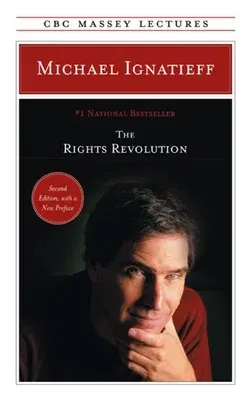Michael Ignatieff
(Author)The Rights RevolutionPaperback, 1 February 2007

Temporarily out of stock
Free Delivery
Cash on Delivery
15 Days
Free Returns
Secure Checkout

Part of Series
CBC Massey Lectures
Part of Series
Massey Lectures
Print Length
184 pages
Language
English
Publisher
House of Anansi Press
Date Published
1 Feb 2007
ISBN-10
0887847625
ISBN-13
9780887847622
Description
Product Details
Author:
Book Format:
Paperback
Country of Origin:
CA
Date Published:
1 February 2007
Dimensions:
20.17 x
12.95 x
1.24 cm
Genre:
Canadian
ISBN-10:
0887847625
ISBN-13:
9780887847622
Language:
English
Location:
Toronto
Pages:
184
Publisher:
Weight:
208.65 gm